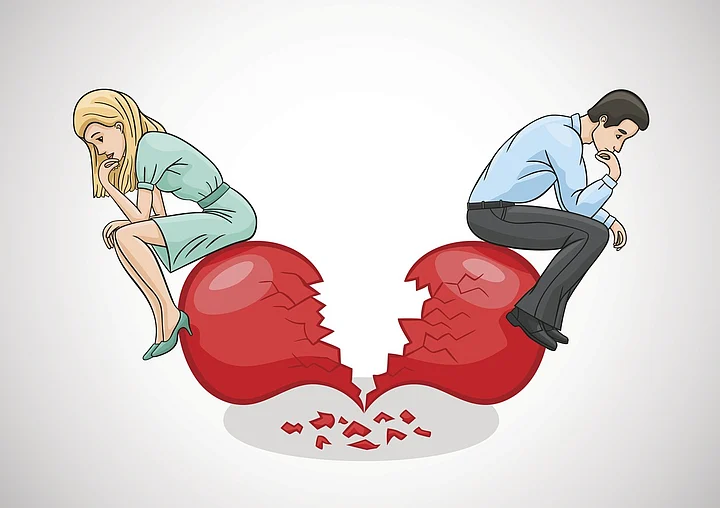“I left with a heavy heart.” “I have butterflies in my stomach.” “My heart aches to see you go.”
For many, all these may just be metaphors, but we forget that there must be a reason why these phrases came to be in the first place. It’s called ‘heartbreak’ because the pain is physical, not just emotional. Not just grief because of break ups, but nervousness, happiness, loss and sadness – all emotions have physical manifestations in our body.
Yes, you’re not alone in feeling that heaviness in your chest. Some feel it in their chest, some in their gut and others experience it as a more diffused pain all over. It’s been scientifically proven that emotions result in physical changes.

Our Survival Instinct Makes Us Feel Emotions
We as humans are social beings. We need healthy relationships in life for our psychological well-being.
So when there’s loss of a loved one, a bad break up or a really nervous situation, our body and brain goes into damage control mode to keep us safe from any danger.
Our physiological response to grief, rejection or loss stems from our deepest survival instincts. As seen in several studies, social scientists believe that this dates back to early man times, when humans were herd animals and needed to stick together to survive.
Our brain developed a physical alarm system that warned us when we got too far from the people who helped keep us alive.

Ethan Kross of University of Michigan’s Emotion & Self Control Lab, which published a study on social rejection and physical pain in 2011, said:
A social rejection hijacks the part of our brain that signals pain to say, ‘Hey, this is a really serious situation,’ because just like physical pain, the consequences could be there.
So when we lose someone who we feel is a huge part of our existence, it sets off a process to activate the same regions in our brain that make us feel physical pain. This happens so that we address the situation and put into action a solution.
Stress Gives Way to the ‘Broken Heart Syndrome’
Emotional events like these also cause us to stress. This stress translates into physical symptoms.
In medicine, ‘broken heart syndrome’ refers to a form of ‘stress induced cardiomyopathy’, which is accompanied by sudden, intense chest pain — the reaction to a surge of stress hormones.

In broken heart syndrome, a part of your heart temporarily enlarges and doesn’t pump well, while the rest of your heart functions normally, or with even more forceful contractions.
Now some may say, they’ve never felt this. And that’s true, not everyone reacts to situations the same way. How we respond and assess situations is deeply personal. Some may just feel ‘low’, while for others it can be a cause for great distress.
Fight-Or-Flight Response Is What Makes Our Gut Wrench
We’ve always heard and experienced how nervousness, grief or heartbreak can either make us eat a lot or reduce our appetite or just reflect as a uneasiness in the stomach.
It has something to do with how our brain looks at situations.
You’re either getting into a new unsure future or an event that makes you anxious about what is going to happen, which puts your brain on high alert to combat possible danger.
The reason for being anxious will differ and are best known to you. This is what activates the flight-or-fight response in your brain.

Your body basically tries to tell you to run from this impending danger or fight it out. Adrenaline kicks in, your blood starts pumping, heart rate is increased and the blood rushes from your gut, giving you a fluttering or a twisting sensation in your stomach.
This shortage of blood in your gut causes the muscles to contract, and affects your digestion as well. The stomach senses this shortage of blood and oxygen, so its own sensory nerves are letting us know it’s not happy with the situation. Hence, the appetite change.
So, it’s not just you. Heartache and these other physical feelings of emotions are real. How you deal with it is up to you and can be slowly and steadily combated.
(At The Quint, we are answerable only to our audience. Play an active role in shaping our journalism by becoming a member. Because the truth is worth it.)
